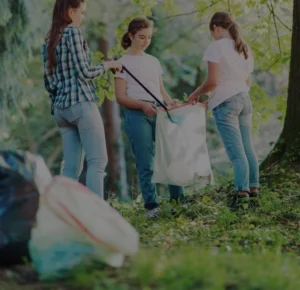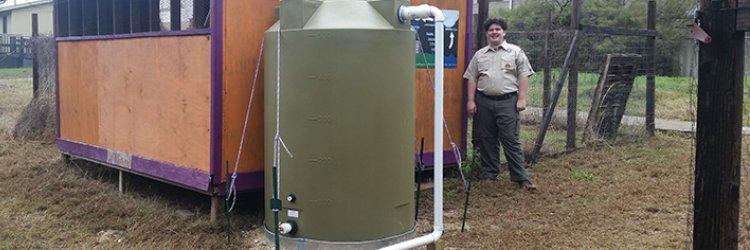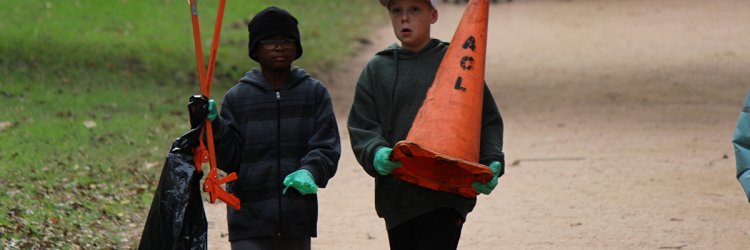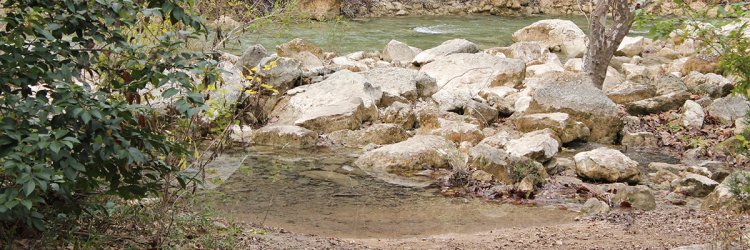The City of Austin has a Zero Waste goal set for 2040. That means 90% of discarded material is diverted from landfills. As a part of that goal, The University of Texas at Austin is aiming to become a Zero Waste campus by 2020. UT Austin’s goal is for 90% of discarded material on campus to be composted, recycled or reused.
Division of Housing and Food Services (DHFS) has spearheaded the initiative and so far they have made recycling accessible all over campus. Students living in the dorm halls now have recycling bins in their rooms, and faculty and staff also have recycle bins in their office spaces and break rooms.
DHFS is currently making strides toward zero waste in the dining halls. All produce sold and used at the dining halls on campus are grown in house at the Jester, Kinsolving and Concho gardens. In addition, any eligible food waste is composted and turned into fertilizer for the community gardens. Any other food waste created at the dining halls is recycled at commercial composting facilities.
Education is an important factor in the path to diverting unnecessary waste from local landfills. In order to reach students that don’t live in resident halls and to educate the entire student body on proper waste disposal, DHFS hosts numerous sustainability events that provides information on the importance of reducing ones ecological footprint.
Outside of the Division of Housing and Food Services, The University of Texas at Austin has numerous ways to help reduce waste on campus by actively engaging students. There are clubs and organizations, such as the Campus Environmental Center (CEC) and the Longhorn Center for Civic Engagement, that specialize in sustainability. The CEC is a student led organization, sponsored by the Office of Sustainability, which runs projects on campus in order to build awareness around sustainability.
LBJ Green Society, UT Staff Council and Net Impact McCombs take a policy approach and help influence campus wide change.
A complete list of organizations that emphasize sustainability and environmental conservation at UT can be found here.
Students or anyone interested in being more sustainable in their everyday lives can remember to correctly dispose recyclable materials, start composting at home, and picking up litter when they see it on the ground. More information on recycling and composting at home can be found via Austin Resource Recovery.
Another way to help make all of Austin more beautiful and sustainable is volunteering with organizations like Keep Austin Beautiful, who work with The University of Texas at Austin. Volunteering and community engagement is a great way to ensure that UT and Austin reach their respective goals of becoming a zero waste campus and city by 2040.
Upcoming volunteer opportunities with Keep Austin Beautiful’s can be found here.
It can be hard to know where to start helping when faced with a daunting issue like eliminating waste. However, simple and educated lifestyle changes can make a positive difference.





